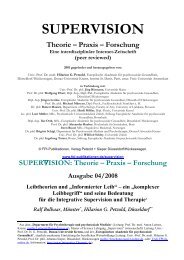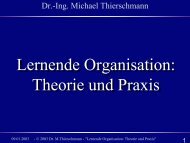Ilia Chavchavadze - brainGuide
Ilia Chavchavadze - brainGuide
Ilia Chavchavadze - brainGuide
Create successful ePaper yourself
Turn your PDF publications into a flip-book with our unique Google optimized e-Paper software.
III. The essence of democracy<br />
seems to disappear when it comes to realization of it, – because not the<br />
will of each citizen can be taken into consideration, but only the will of<br />
that part of society which makes up the majority, – but the domination of<br />
the will of majority, how real it may seem in its concrete manifestation, is<br />
in the final analysis only a relative domination, even just a seeming one,<br />
since the principle of majority itself originates from the common will. In<br />
other words, a concrete legal supremacy of the will of majority under<br />
conditions of legal equality is based on people’s truly common resp.<br />
united will.<br />
Separately from the significance of legal equality resp. just on the<br />
basis of principle of majority explains Aristoteles the democracy, i. e. the<br />
essence of democracy is reduced here to the subordinating of minority to<br />
the majority. With a view to the principle of majority Hegel leaves the<br />
phenomenon of legal equality unconsidered too. Referring to the „distinction<br />
between the rulers and the ruleds“, he neglects that in a democratic<br />
society the formers are in the service of the latters, the state – in the service<br />
of people, the state will – in the service of common will and not vice<br />
versa, which on its part essentially means the ignorance of qualitative specificity<br />
of democracy and with it of the actual sense of legal equality.<br />
In contrast to the aforesaid in Kants philosophy the subject of central<br />
interest is not the correlation between the majority and the minority, but<br />
between the individual and the public will; however his views in this regard<br />
cannot be brought fully in conformity with reality, for the legislative<br />
will in that way, in which it is presented with Kant (resp. as an „unanimous<br />
will of people“), is in fact just a theoretically achievable condition.<br />
Or rather, he determines the essence of democracy without differentiating<br />
between the in the given context decisive general and concrete elements:<br />
The equality principle, in its generaliy, does not represent here a legal<br />
instrument for restricting of principle of majority, in its concreteness, but<br />
the significance of this functional connection remains in essence disregarded.<br />
Similarily determines Leibniz the problem of correlation between the<br />
133
















